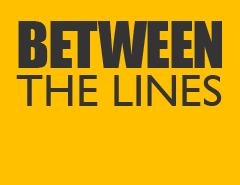Sterling plummets immediately markets open due to the UK government’s hard Brexit stance.
With predictable regularity, the UK pound plummeted as FX markets opened on Sunday evening, due to various UK publications, such as The Sunday Times, suggesting that the prime minister Theresa May will insist on controlling her country’s borders as part of Brexit. Therefore a full exit from Europe, including tariff free trade ending for the UK, will be the only option. As a consequence sterling slumped versus its major peers.
The UK government may feel emboldened, due to the various economic indicators released recently suggesting the UK’s economy is strong enough to withhold the stress and impact of leaving the European Union. And the Tory party’s polling lead, which appears to be impervious to what many commentators believe is their atrocious handling of the current situation, with only weeks before the countdown to an exit timetable begins, may be adding to the government’s confidence.
GBP/USD printed a low of 1.19899 shortly after open, close to the 31 year low experienced during the flash crash in October 2016. Suddenly the low predicted by many in a recent Reuters poll; suggesting that cable could reach 1.15 or indeed parity during 2017, looks achievable.
There are several major economic calendar events which traders need to be mindful of throughout the week, namely: the ECB meeting and decision making, various inflation readings, the USA corporate earnings season beginning and the week finally ending with Donald Trump’s inauguration.
Inflation reports.
On Tuesday the UK’s latest inflation data will reveal how sterling’s plunge, versus the euro and the dollar, is pushing up UK prices due to increased import costs. Inflation began to creep up towards the end of 2016, many economists are suggesting that the UK’s inflation rate could breach 3% by the end of 2017. This first reading of 2017 will therefore be keenly watched, given that it spiked to 1.2% in December, from previous readings of circa 0.6%. Wednesday also sees the release of the USA CPI inflation report, as well as the final reading for the Eurozone in December.
ECB
The ECB recently decided on an extension of its asset purchase programme (quantitative easing) by three months to the end of 2017, whilst reducing the size of easing from €80bn a month to €60bn from April. Interest rates still remain negative. The ECB is expected to maintain that policy as the Governing Council meets in Frankfurt on Thursday. Mario Draghi will hold a press conference post-meeting.
Earnings
US earnings season begins this coming week. Financial companies’ data will be published including many heavyweights such as: Goldman Sachs, Morgan Stanley, Citigroup and American Express due to report their fourth quarter earnings. Netflix, is due to report on Wednesday after its share price recently hit a record high.
Trump’s inauguration
On January 20th Donald Trump is inaugurated. The Trump sentiment bounce and rally, due to his promises of huge fiscal stimulus and possibly repealing acts such as the Dodd Frank act restricting excessive bank lending and proprietary dealing, has shown signs of fading over the past two weeks as the psyche level of 20,000 for the DJIA still remains unreached. However, as from Friday the markets are dictated by Trump policy primarily. And as we’ve pointed out in this column before, the current P/E ratios of many equity markets and individual shares in the USA are way above the historical mean, notwithstanding the fact that the bullish market (over recent years) has been share buy back driven and not performance related.
Economic Calendar for the week commencing Sunday January 15th (all times are London time)
Monday, 16 January
All day – Martin Luther King Day – US bank holiday
00:01 – Rightmove house price index
09:00 – Italy CPI inflation
Tuesday, 17 January
04:30 – Japan industrial production
09:30 – UK CPI/PPI inflation (December), house price index (November)
10:00 – German ZEW economic sentiment
13:30 – Empire State Manufacturing Index
Wednesday, 18 January
All day – World Economic Forum in Davos, Switzerland
07:00 – German final CPI
09:30 – UK average earnings, unemployment data
10:00 – Eurozone final CPI
13:30 – US CPI inflation
14:25 – US capacity utilisation rate, industrial production
15:00 – Bank of Canada monetary policy statement, interest rate decision
15:00 – US NAHB housing market index
19:00 – Fed Beige Book
Thursday, 19 January
All day – World Economic Forum in Davos, Switzerland
00:30 – Australian employment data
08:15 – Swiss PPI inflation
12:45 – ECB interest rate decision, monetary policy announcement
13:30 – ECB press conference
13:30 – US building permits, housing starts, weekly unemployment claims, Philly Fed manufacturing index
13:30 – Canadian manufacturing sales
16:00 – US crude oil inventories
Friday, 20 January
All day – World Economic Forum in Davos, Switzerland
82:00 – China GDP, industrial production, retail sales figures
07:00 – German PPI inflation
09:30 – UK retail sales
13:30 – Canadian retail sales, CPI inflation
17:00 – Donald Trump sworn in as 45th president of the United States

